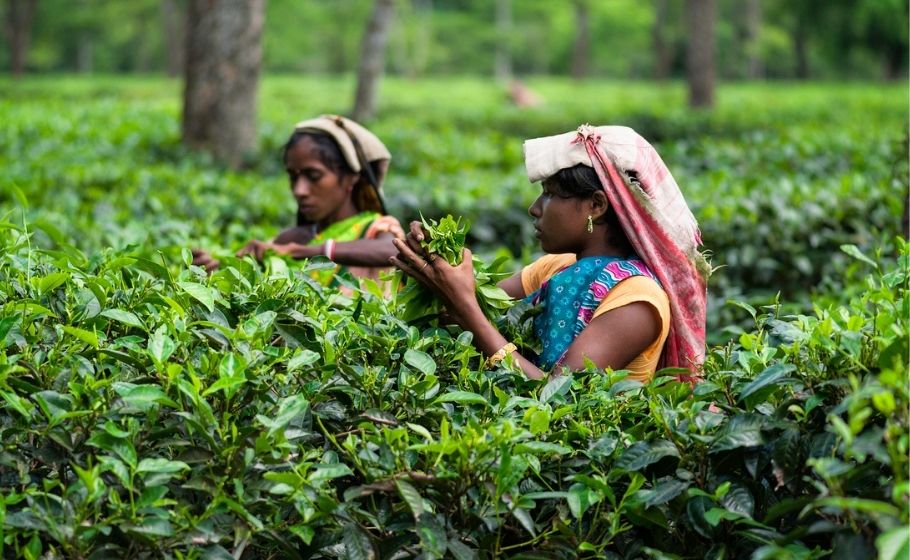
First phase: BJP hopes two-fold plan will help maintain upper Assam grip
The three-phase election in Assam began on Saturday with the first-phase polling in 47 seats spread across districts where protests against the Citizenship Amendment Act (CAA) were at their peak. In this upper Assam region — comprising both the South and North banks of the Brahmaputra valley — the BJP and its ally, the Asom Gana Parishad (AGP), had bagged 35 of the 45 seats in the previous election.

The three-phase election in Assam began on Saturday with the first-phase polling in 47 seats spread across districts where protests against the Citizenship Amendment Act (CAA) were at their peak.
In this upper Assam region — comprising both the South and North banks of the Brahmaputra valley — the BJP and its ally, the Asom Gana Parishad (AGP), had bagged 35 of the 45 seats in the previous election. The party is hoping to repeat the performance as the BJP-led government has been largely able to douse the anti-CAA fire with a two-pronged strategy of granting autonomous councils to the disgruntled indigenous communities and inducting into the party fold many leaders who had led the protests.
Also read: Assam is stuck in time warp over identity and it’s not going to get over soon
Arunjyoti Moran, a firebrand leader of the All Assam Moran Students’ Union, who was active during the anti-CAA movement, joined the BJP in January. Though he didn’t get a ticket to contest the election, he is actively backing the party he had opposed over the citizenship law. “The BJP can solve the issues and problems in Assam and it is important to support the party,” Moran told the media after joining the BJP.
The BJP also inducted senior AASU leaders Rahul Das and Parikhit Dutta — both were part of the anti-CAA protests in Assam — into the saffron fold.
At least 25 actors and singers, with a large fan-following and who were the face of the anti-CAA protests, have also joined the BJP. They include actor Jatin Bora, singers Simanta Shekhar and Vidyasagar, Kallol Borthakur, Nayan Nirban, Asha Bora and Baikuntha Prince.
Another prominent organisation that had spearheaded the movement in Assam was the Krishak Mukti Sangram Samiti (KMSS), which is headed by firebrand activist Akhil Gogoi. Last year, 26 members of the KMSS joined the BJP, and, along with them, prominent leader of the Scheduled Caste Students Union, Jadav Das, also joined the party. Das had staged a naked protest in New Delhi in protest against the CAA. However, after joining the BJP, he said most of the anti-CAA leaders are hand in glove with the Congress and that he was “misled and misguided”.
Autonomous councils to end CAA protests
In an attempt to pacify the CAA protestors, the Assam government passed four bills in the Assembly last year to create autonomous councils for the Moran, Motok, and Koch-Rajbongshi communities in the state. The Moran Autonomous Council Bill, 2020, The Motok Autonomous Council Bill, 2020, and The Kamatapur Autonomous Council Bill, 2020, were tabled on March 24 last year.
Later, the Assembly also passed a Bill for creating an autonomous council for the Bodo-Kachari community living outside the Bodoland Territorial Region (BTR) comprising four districts of Kokrajhar, Chirang, Baksa and Udalguri.
Also read: Infighting erupts within BJP, AGP camps after seat-sharing deal in Assam
“The BJP-led government will be providing ₹125 crore to each of the Ahom, Chutia, Moran and Motok communities for generating self-employment opportunities, infrastructure development, preservation of monuments and archaeological heritage,” office of the Assam chief minister had stated after the bills were passed.
The state government had also announced setting up of the Birangana Sati Sadhani State University at Golaghat to commemorate the last queen of the Chutia dynasty, Sati Sadhani.
The only worry for the BJP in this region, which is also the state’s tea growing belt, is the growing resentment among the tea communities over the Scheduled Tribes status not being granted to them and the low wage of plantation workers. The influential Assam Tea Tribes Students’ Association (ATTSA) enforced a shutdown of tea estates across the poll-bound state on March 22 demanding better pay for plantation workers.
The tea tribe community exerts major influence in several Assembly constituencies in the upper Assam districts.

